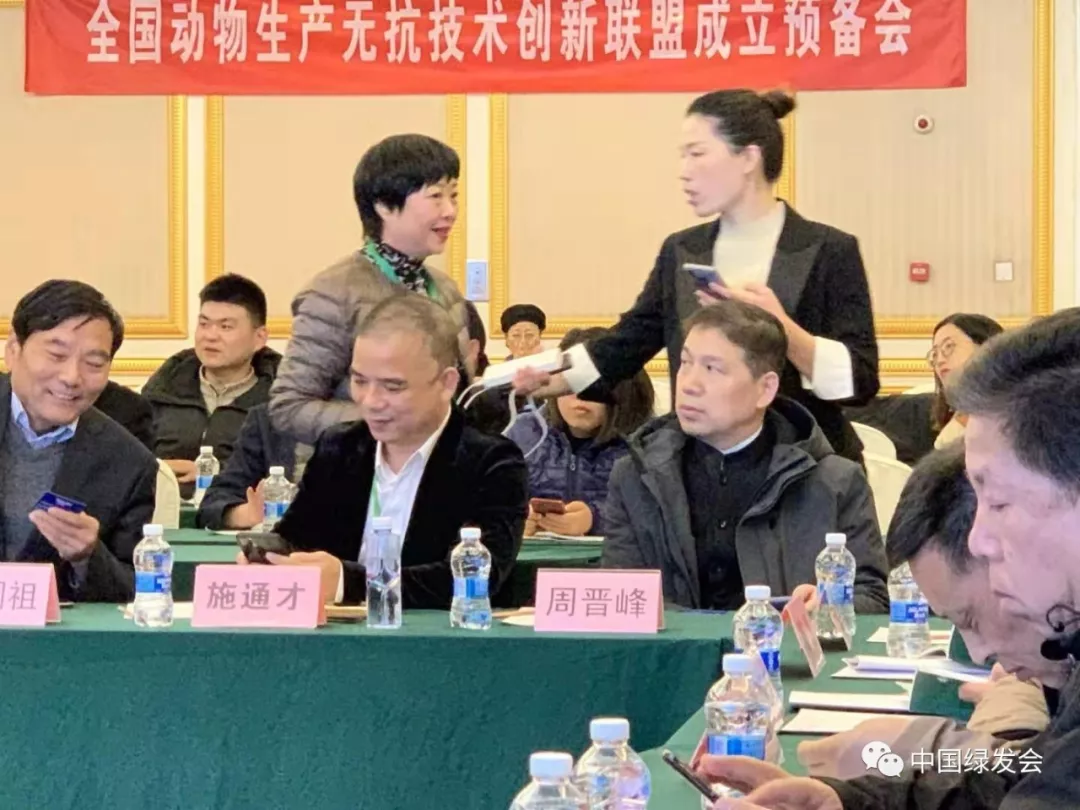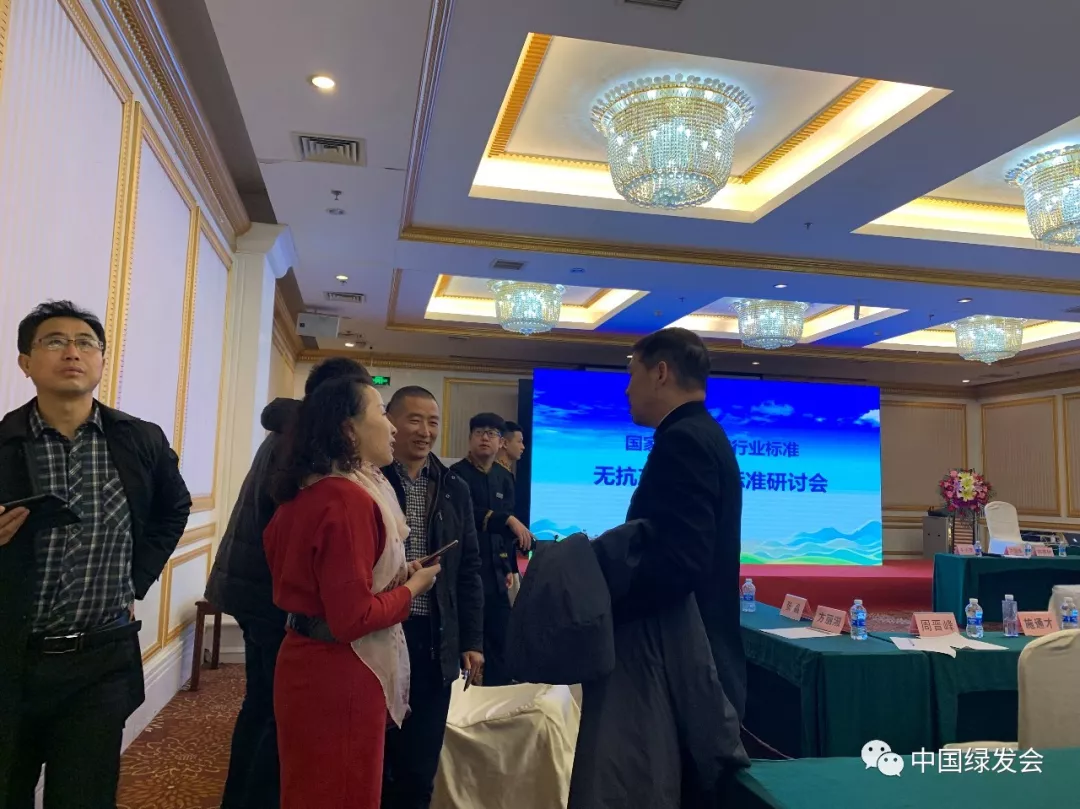On December 14, 2019, the Secretary-General of China Biodiversity Conservation and Green Development Foundation Dr. Zhou Jinfeng was invited to participate in the "National Antibiotic-Free" Industrial Technology Innovation Alliance Establishment Conference co-organized by the Feed Research Institute of Chinese Academy of Agricultural Sciences and Zhongjianan Testing Certification Center in Beijing. In the morning, Dr. Zhou discussed his thoughts on the standard framework of the national certification and accreditation industry standard "Antibiotic-free Product Certification Standards" at the expert meeting of the antibiotic-free product certification standard seminar. In the afternoon, at the preparatory meeting for the establishment of the alliance, Dr. Zhou Jinfeng was appointed as the vice chairman of the alliance after unanimous confirmation by the members of the conference. Dr. Zhou's morning speech is organized and shared below.
Dr. Zhou introduced a recent news provided by CBCGDF, which was broadcast by CCTV. In Tianjin and Hebei Province in the Bohai Rim region, 17 Oriental storks were found dead because they ate the fish from a fishpond. Why do they die when they eat fish? It’s because the owner of the pond used pesticides in the pond. It is conceivable that the amount of pesticides used in the production process is too large, not only for humans, but also for future generations, it will cause great damage to the environment. What about overuse of antibiotics? In terms of oceans, Dr. Zhou said that he had taken a seaplane to an uninhabited island in the South China Sea and found that chlorothalonil was thrown on the uninhabited island. This antibiotic left in a tin can was poured directly into the sea. Situation can have serious effects on both humans and habitats. Because this may not only cause 1000-2000 people die each year due to drug resistance, but also may cause death of microorganisms, animals and plants in the ecological environment.
Later, Dr. Zhou introduced CBCGDF as a national-level society, and its work included biodiversity conservation. He introduced the work of "low antibiotics and no antibiotics" from the perspective of biodiversity and ecosystems, which is vital to humans and human habitats.
Later, Dr. Zhou pointed out that antibiotic-free experiments are related to food safety and are a benefit to humanity as a whole. CBCGDF is one of the first batch of 16 charitable organizations in China recognized by the Ministry of Civil Affairs of China. It has a national and global public fundraising license. It fits into the scope of CBCGDF's work, and CBCGDF is very willing to support antibiotic-free projects.
In the end, he made three suggestions on the standard framework of the "Antibiotic-free Product Certification Specifications" and stated that standards should be established on the following three levels.
1. Establish standards at the terminal of the product, that is, establish standards for the final product;
2. The standardized management of the whole process must have standards in the final product and the detection of the use of the product;
3. There must be standards for the raw materials of the products.
He also pointed out that at present, even antibiotics in water are exceeding standards. He pointed out that not only the entrance of the product must be checked, that is, not only the feed but also the exit, including liquid and solid waste. He said that he strongly supports the testing of all exported waste, because it can directly observe the actual situation in the production process. Of course, does the exit require a certain zero checkout? He believes that this is not necessarily the case, it should depend on what percentage of products we want to promote to reach the non-resistance standard, such as the 1% standard. Because the standard must meet the actual situation, if it does not meet the defined standard, then this standard is meaningless. Therefore, he believes that the current 1% target is a good and leading goal.
He also said that a few years ago, he very much wanted to sue the companies that produce sea cucumbers and produce marine products, because those companies put antibiotics on the coast, which caused severe impacts on offshore aquatic products, but suffered from the lack of standards, but there are standards now, and the feeding process will be watched. He went on to point out that this standard alone is not enough, and there are many links that are also very important. Therefore, he believes that the target of 1% can be adjusted according to actual conditions and hopes that everyone should fundamentally realize that the management and monitoring of the entire process of the production link is very strict. Medicine can be used when an epidemic occurs, but this may not be operable, and it is not as easy as testing from three inspections. For example, whether sick or not, whether the illness is mild or severe, whether antibiotics are used more or less, and so on. After reducing antibiotics to feed, but in the production process, many businesses will use antibiotics in order to save trouble, be safe, and be assured in the process. Dr. Zhou therefore believes that there must be a system of three inspections and irregular spot checks in order to make this certification standard more practical. He pointed out that the current 1% leading goal is guiding ideology.



(Photo credit: CBCGDF)
Original Chinese article:
http://www.cbcgdf.org/NewsShow/4854/10809.html
By / Maggie
